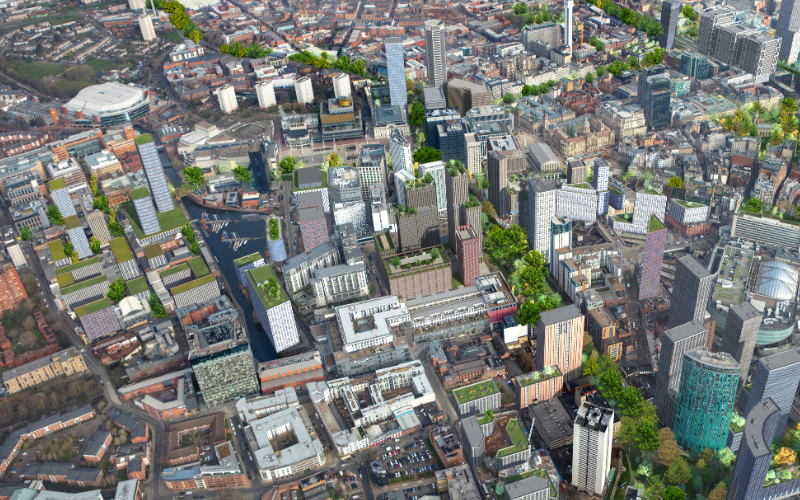Birmingham is a city with a proud history of innovation and progress. Now, with the release of the Our Future City Framework, the city is set to enter a new era of digital transformation outlining a vision for a more connected, sustainable, and prosperous city, powered by digital technology.
At the heart of the Frameworks is a commitment to digitisation, with a recognition that digital technology has the power to transform the way we live, work, and interact with each other. By embracing digital technology, Birmingham can become a more efficient, productive, and inclusive city.
One of the key goals of the 2040 Framework is to create a more connected city. This will be achieved through the development of a high-speed digital infrastructure, making it easier for people and businesses to access the internet and connect with each other. This will be supported by the development of smart city technology, such as sensors and data analytics, which will help to improve the efficiency of city services and reduce costs.
Another important aspect of 2040 Framework is its focus on sustainability, recognising that digital technology has the potential to help us tackle some of the biggest environmental challenges facing our city, such as air pollution and climate change. By using digital technology to monitor and manage our energy usage, we can reduce our carbon footprint and create a more sustainable city.
However, it is important to recognise that the benefits of digitisation are not just limited to the environment. Digitisation can also help to create a more inclusive and prosperous city, by providing new opportunities for residents and businesses. For example, the development of digital skills and training programmes can help to create new job opportunities and improve the employability of local residents.
Furthermore, digitisation can also help to create a more inclusive city, by improving access to services and information. For example, the development of digital platforms and apps can help to make it easier for residents to access city services, such as healthcare and education. This can be particularly beneficial for those who may have difficulty accessing traditional services, such as people with disabilities or those living in remote areas.
In conclusion, Our Future City: Central Birmingham Framework 2040 represents an exciting vision for the future of our city. By embracing digital technology, Birmingham can become a more connected, sustainable, and prosperous city, with benefits for everyone. However, it is important to recognise that the benefits of digitisation are not automatic, and will require a concerted effort from all stakeholders, including the local government, businesses, and community organisations. By working together, we can create a digital future that works for everyone.
Read more about the framework on the Birmingham City Council website.

